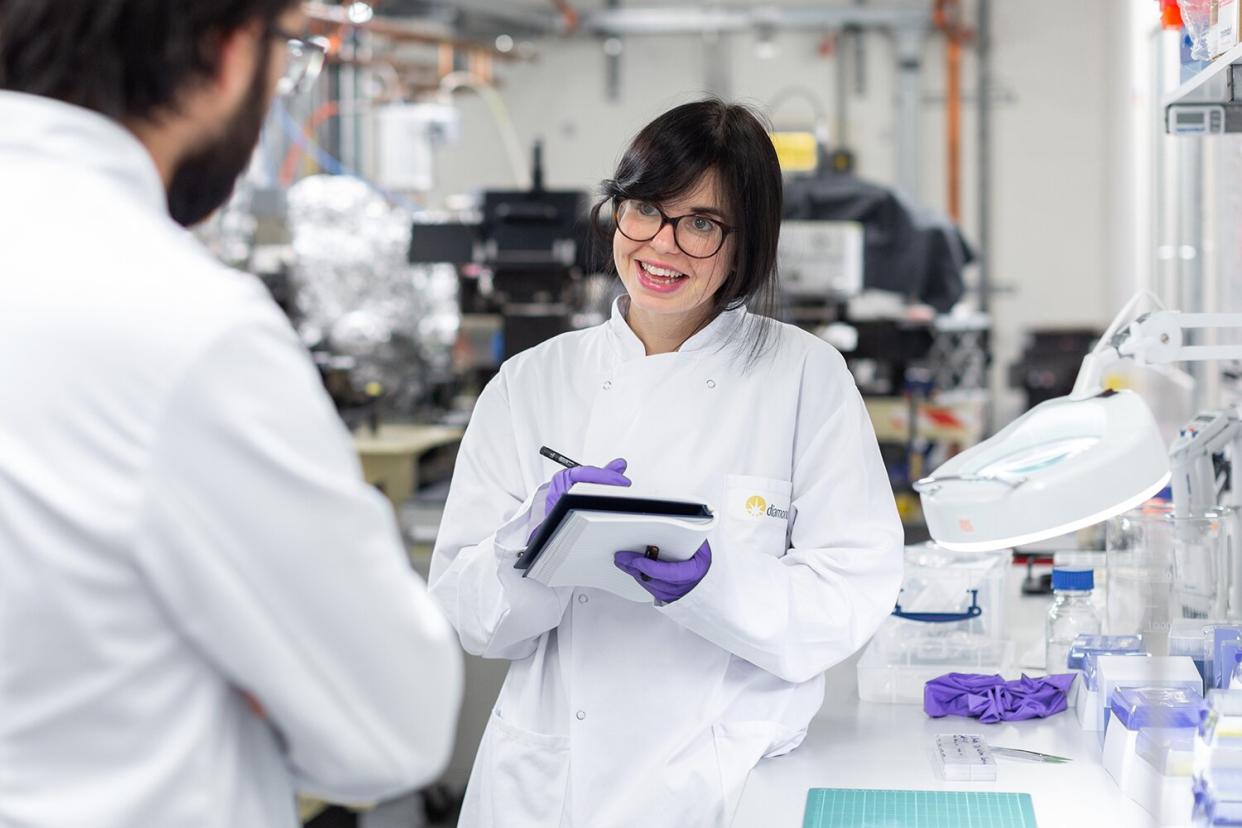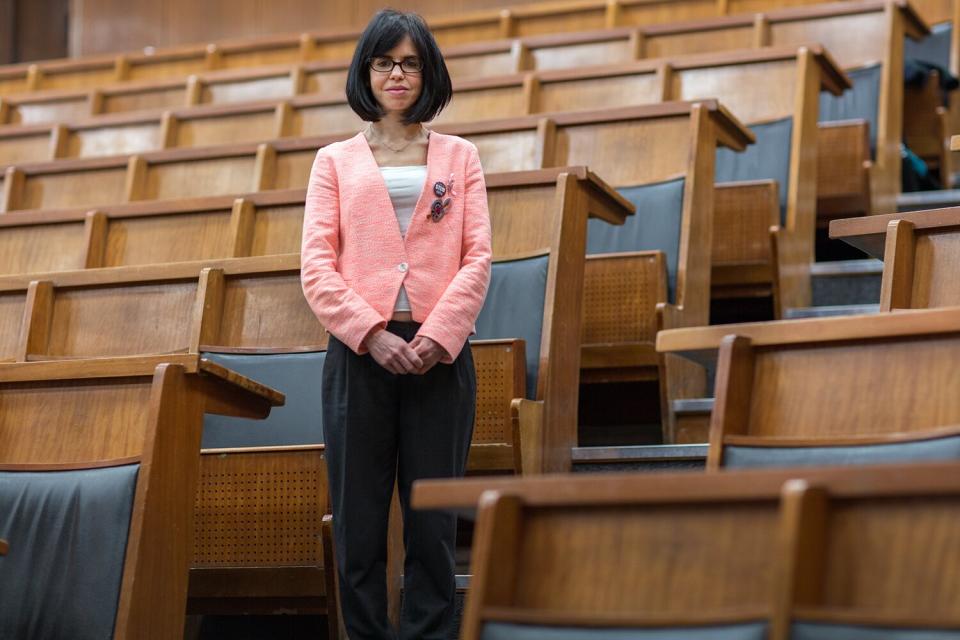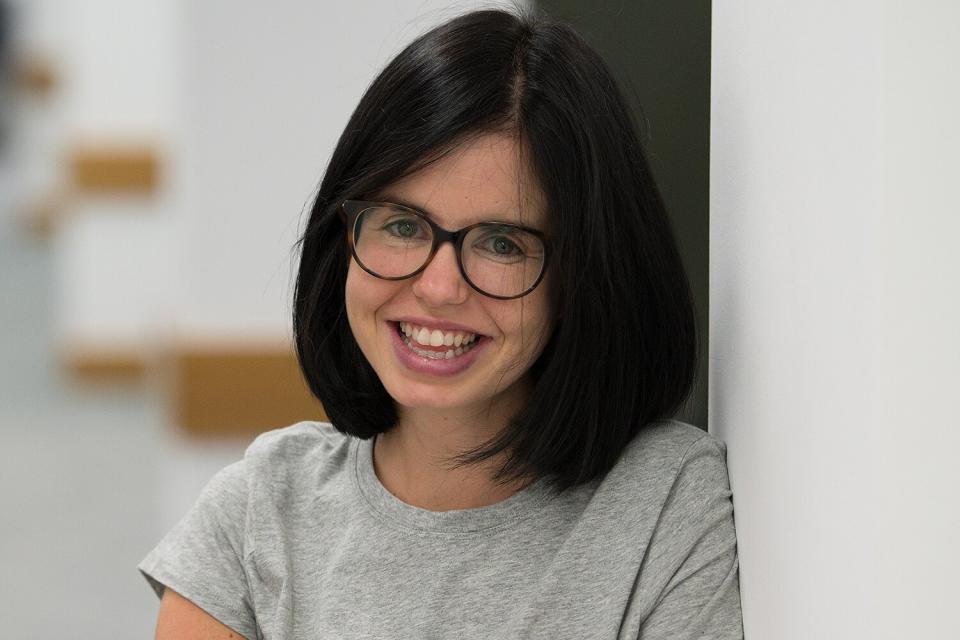Jess Wade Has Written More Than 1,750 Wikipedia Pages for Overlooked Women and Minority Scientists

- Oops!Something went wrong.Please try again later.
Courtesy Jess Wade
Jess Wade is a physicist and a British Empire Medal recipient. Not only that, she is a prolific Wikipedia author.
The 33-year-old from England has written over 1,750 Wikipedia pages for female and minority scientists, all in her pursuit of giving them the credit they are due.
"Wikipedia is a really powerful way to give credit to people who, for a long time, have been written out of history," Wade recently told the Washington Post.
"Not only do we not have enough women in science, but we aren't doing enough to celebrate the ones we have," she added.
Wade told the outlet that she began writing Wikipedia articles in 2017 when she found out that American climatologist Kim Cobb did not have a page of her own, despite her success in the field.
After searching, Wade discovered there were many women and minority scientists that did not have a profile on the popular website, which includes pages on everything from historical figures to Hollywood celebrities.

Courtesy Jess Wade
RELATED: Meet the 'Outstanding' 34-Year-Old Scientist Leading the Charge on Coronavirus Vaccine Trials
"Having people know who you are means you get more opportunities," Wade told the newspaper.
One of the other female scientists she has written about is Clarice Phelps, the first African-American woman to help discover a new element.
In an interview with Today, Wade said she believes one of the best ways to support girls interested in science is to give them mentorship.

Courtesy Jess Wade
RELATED: American Scientist John Clauser Is One of Three to Jointly Win the Nobel Prize in Physics
"People assume girls don't choose science because they're not inspired," explained Wade, who studied at Imperial College London. "Girls are already interested. It's more about making students aware of the different careers in science and getting parents and teachers on board."
"Ultimately, we don't only need to increase the number of girls choosing science, we need to increase the proportion of women who stay in science," Wade added.
RELATED VIDEO: Scientist Rallies Fellow Moms to Save the Planet: The 'Most Important Thing' Is Our Kids' Future
According to the National Girls Collaborative Project, women only make up only 28 percent of the science and engineering workforce, though they make up half of the college-educated workforce.
"It's also important because we're designing new technologies or new scientific solutions to global problems, we want the teams of people creating them to reflect the societies that they're serving," Wade told Today.
And yes, Wade has her own Wikipedia page.

